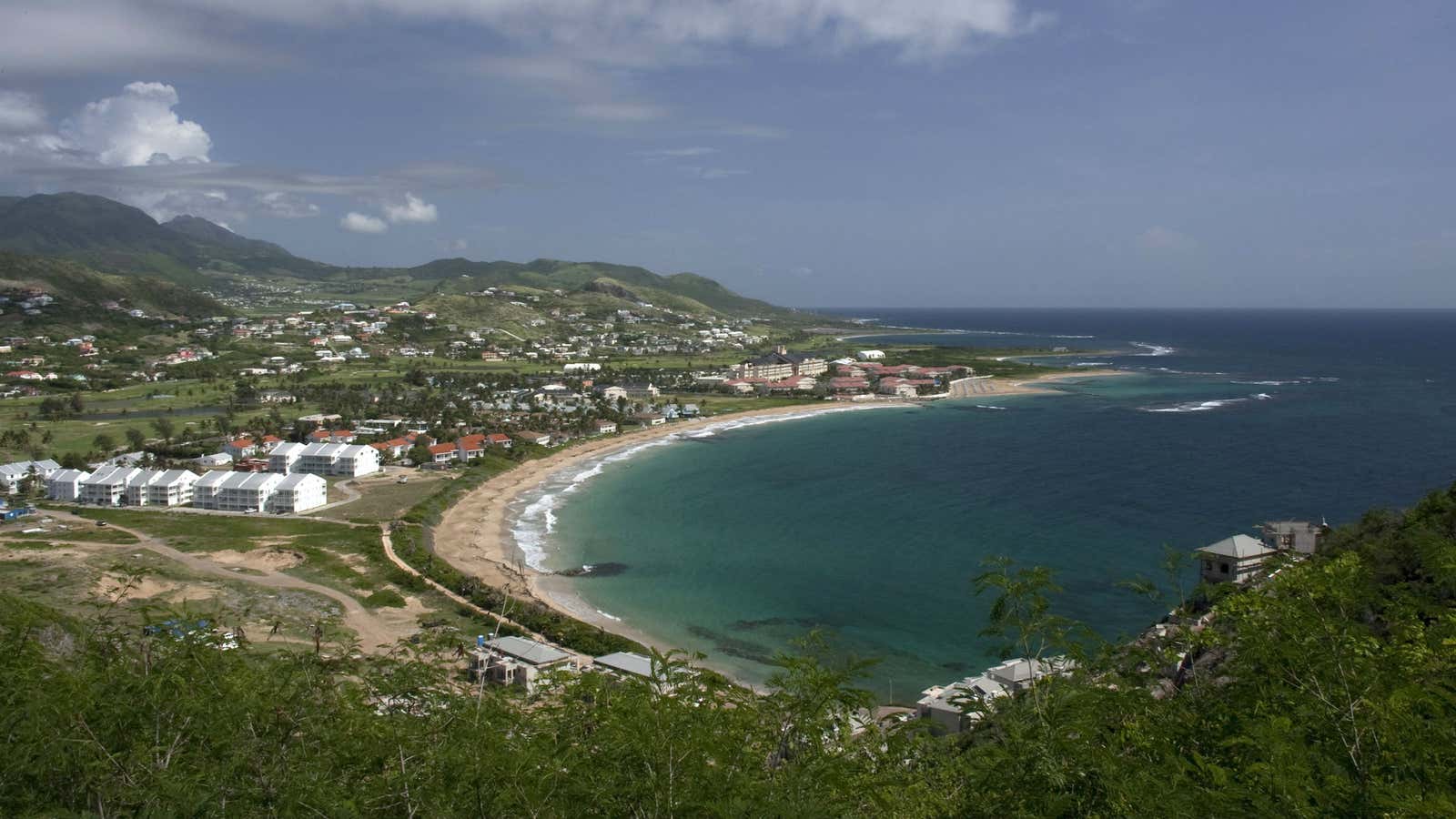In the late 1800s, Chinese citizens were banned from immigrating to the US where authorities feared they would take American jobs. Now, Chinese nationals, or at least the wealthy ones, are among the most sought-after immigrant groups around the globe.
There are two main reasons for this. First, governments around the world need extra cash. Meanwhile, rich Chinese, who face limited investment options at home, are looking for better places to deploy their resources. Some are also looking for overseas domiciles in case of scandal at home or so that their children can attend better schools abroad. (As we’ve reported, about 60% of ultra-wealthy Chinese hope to or have obtained a foreign passport or permanent residence permit for a foreign country, according to a Bain survey.)
Strategies for recruiting Chinese immigrants tend to involve “investment immigration” schemes, whereby a foreigner buys real estate or makes an investment in a country in exchange for some kind of resident permit or visa. Last year in the US, the Chinese accounted for the majority of visas granted to foreigners who invested $500,000 or more and created ten new jobs in America. Australia hosts a similar “significant investor” visa. Gambia has even found a way to cash in on mainland Chinese looking to immigrate to Hong Kong.
Now, the competition between countries is mounting, according to the Wall Street Journal (paywall). ”There is an all-out immigration war emerging for the Chinese,” Jean-François Harvey, an immigration lawyer with the Harvey Law Group in Hong Kong, told the paper.
For example, Greece has promised a resident visa to foreigners who buy property for €250,000 (about $330,000), just a tad lower than what’s required by its neighbor, Cyprus. Almost a year after Portugal launched its “golden visa program” offering visas for real estate purchases of €500,000 or more, Spain has said it will launch a similar program.
In the Caribbean, citizenship is granted in St. Kitts to foreigners who spend $400,000 on real estate. (Benefits include “visa-free travel to more than 120 countries” as well as possible preferential treatment to live and work in the UK, according to a website for the Christopher Harbour development on the island.) Interested immigrants can also donate $250,000 to the country’s Sugar Industry Diversification Foundation, an agency tasked with shifting the St. Kitts economy away from dependence on sugar exports. Investors can obtain citizenship in nearby Dominica in exchange for making a deposit of $100,000 in the country’s national bank. Antigua and Barbuda say they will launch a similar citizenship program for donations of $250,000 to the country’s national development fund.
Despite all the incentives, don’t expect a flood of Chinese investors to begin giving up their homeland. For many, the investment option is the priority, not the overseas visa or citizenship. “The mentality among most Chinese is they look at the real estate first, and the visa second,” Denny Ko, a lawyer with Henley & Partners, told the Journal. ”Some just view the visa as a bonus.”
